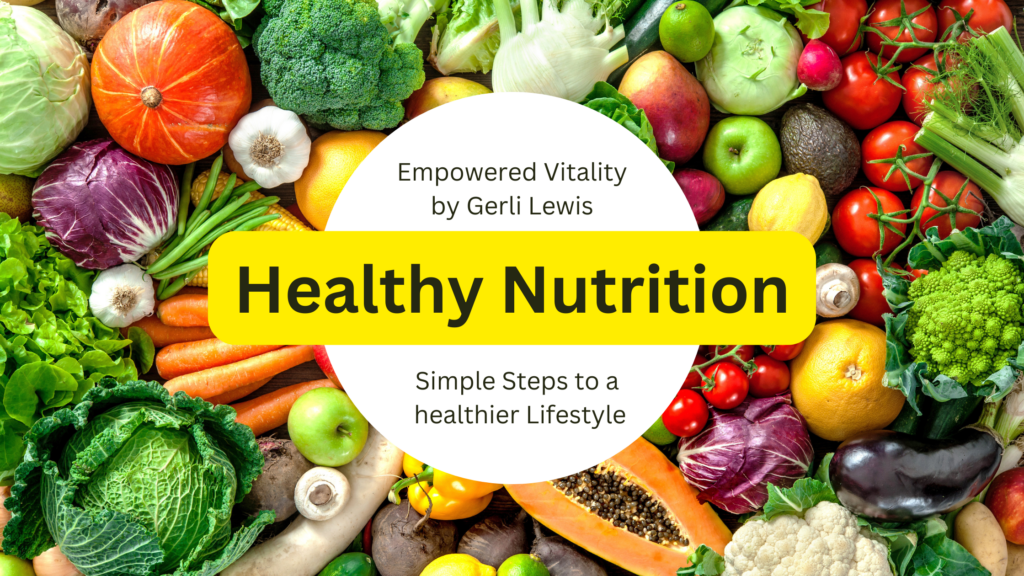Your cart is currently empty!
Healthy Nutrition: Simple Steps for a Better Lifestyle

Achieving a balanced diet doesn’t have to be complex. A few easy-to-follow steps can guide you toward healthier choices and a lifestyle that supports overall wellness. Nutrition is a key component of health, providing the fuel and nutrients your body needs to function optimally.
Why Balance Matters
A balanced diet is essential for maintaining energy, supporting immune function, and promoting mental clarity. Macronutrients—carbohydrates, proteins, and fats—are the main building blocks of our diet, each playing a specific role.
- Carbohydrates: The body’s main energy source, carbs should make up about 45-65% of your daily intake. Carbs from whole grains, fruits, and vegetables provide fiber, which aids digestion and stabilizes blood sugar.
- Protein: Necessary for muscle repair, immune health, and hormone production, protein should comprise about 10-35% of your daily calories. Sources like lean meats, beans, nuts, and tofu help build muscle and repair tissues.
- Fats: Healthy fats are crucial for brain health, hormone production, and cell function. About 20-35% of your daily intake should come from fats, focusing on unsaturated fats like those from avocados, nuts, seeds, and olive oil.
Recommended Daily Intake
For an average adult on a 2,000-calorie diet:
- Carbohydrates: 225-325 grams
- Protein: 50-175 grams
- Fat: 44-78 grams
Simple Steps to Improve Your Nutrition
- Prioritize Whole Foods: Focus on whole, unprocessed foods like fruits, vegetables, lean proteins, whole grains, and healthy fats. Avoid sugary drinks and processed snacks, which can lead to energy crashes and cravings.
2. Balance Your Plate: Aim for a balanced plate with half vegetables, a quarter protein, and a quarter whole grains. This combination supports steady energy levels and essential nutrients. For more information -> HERE
3. Stay Hydrated: Water is essential for digestion, nutrient absorption, and maintaining energy. Aim for 8-10 cups of water daily, or adjust based on your activity level.
4. Plan Your Meals: Planning your meals can prevent unhealthy choices and ensure you’re getting a variety of nutrients. Prepare meals at home when possible to control ingredients and portion sizes. Need some guidence? Check out my personalized Nutrition Plans.
5. Listen to Your Body: Tune into hunger and fullness cues to avoid overeating or undereating. Mindful eating can enhance your enjoyment of food and prevent unhealthy patterns.
6. Seek Support: Feels like you can’t do it all alone? Well, you don’t have to. If you don’t have anyone in your inner circle who would support you, feel free to reach out to me. Contact me anytime!
The Importance of Nutritional Balance
When carbohydrates, proteins, and fats are balanced, you’re more likely to feel energized, maintain a healthy weight, and reduce the risk of chronic diseases. A balanced diet supports brain function, regulates mood, and keeps your immune system strong.
By incorporating these easy steps, you can steadily improve your nutritional habits. Small changes, like choosing whole grains over refined grains or adding more vegetables to your meals, can lead to lasting health benefits. Embrace the journey to a healthier you—one simple step at a time.
